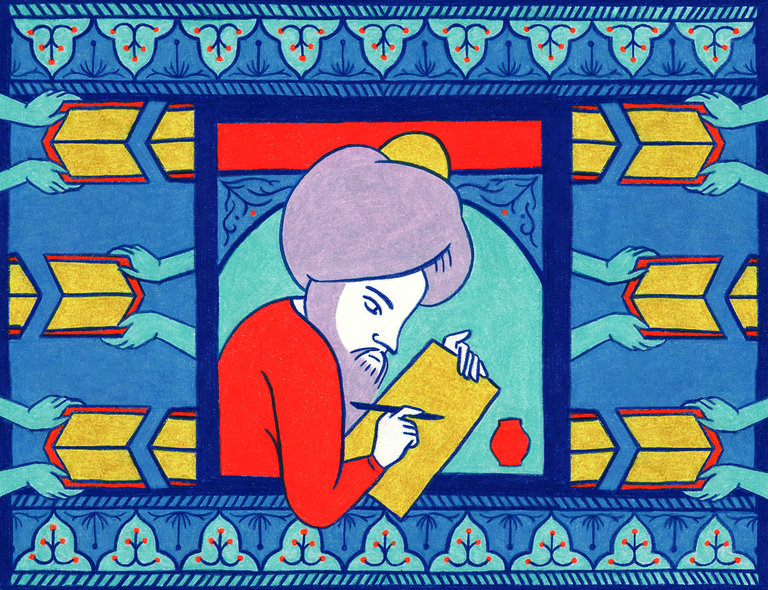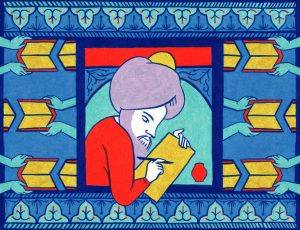Over the centuries, Jalal al-Din Mohammad Rumi — usually known by his surname alone — has become one of the best known literary figures to emerge from the Islamic world. A new book, Brad Gooch, Rumi’s Secret, the Life of the Sufi Poet of Love is a biography of the great mystic poet that seeks to situate him in the context of the mediaeval Muslim world, of which he was one of the brightest stars, but not an anomalous one, even in seeking to stretch the boundaries of religious orthodoxy. A recent review in the New York Times Book Review notes:
“He braves his own translations, and situates Rumi in the broader context of his time and place: a moment of vast creative productivity in the medieval Islamic world, where Sufis were pushing the boundaries of orthodoxy. This path was not without its perils. Nearly 300 years before Rumi, the Sufi saint Mansur al-Hallaj declared, ‘I am the truth,’ an utterance that Sufis understand to this day as the recognition that there is a bit of the divine in all of us. Hallaj was executed for heresy in Baghdad in 922, his limbs chopped off in bloody succession. Rumi flirted with some of these same heretical boundaries, irking local sultans and dour jurisdictional types who often, in the end, forgave him, for he was the great Mowlana.
“Gooch’s biography brings the political and intellectual tumult of the early medieval era to life, producing vivid characters out of the reigning Seljuk sultans and memorable portraits of urban experience. But against this rich backdrop, he constructs a Rumi who has been simplified for our secular age.”
Read the entire review here: https://www.nytimes.com/2017/01/20/books/review/rumi-brad-gooch.html


